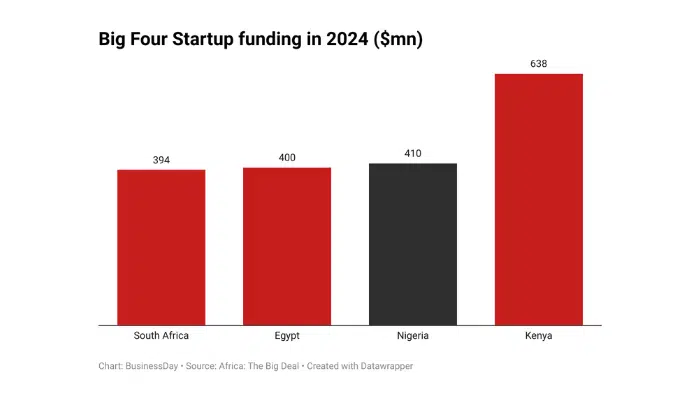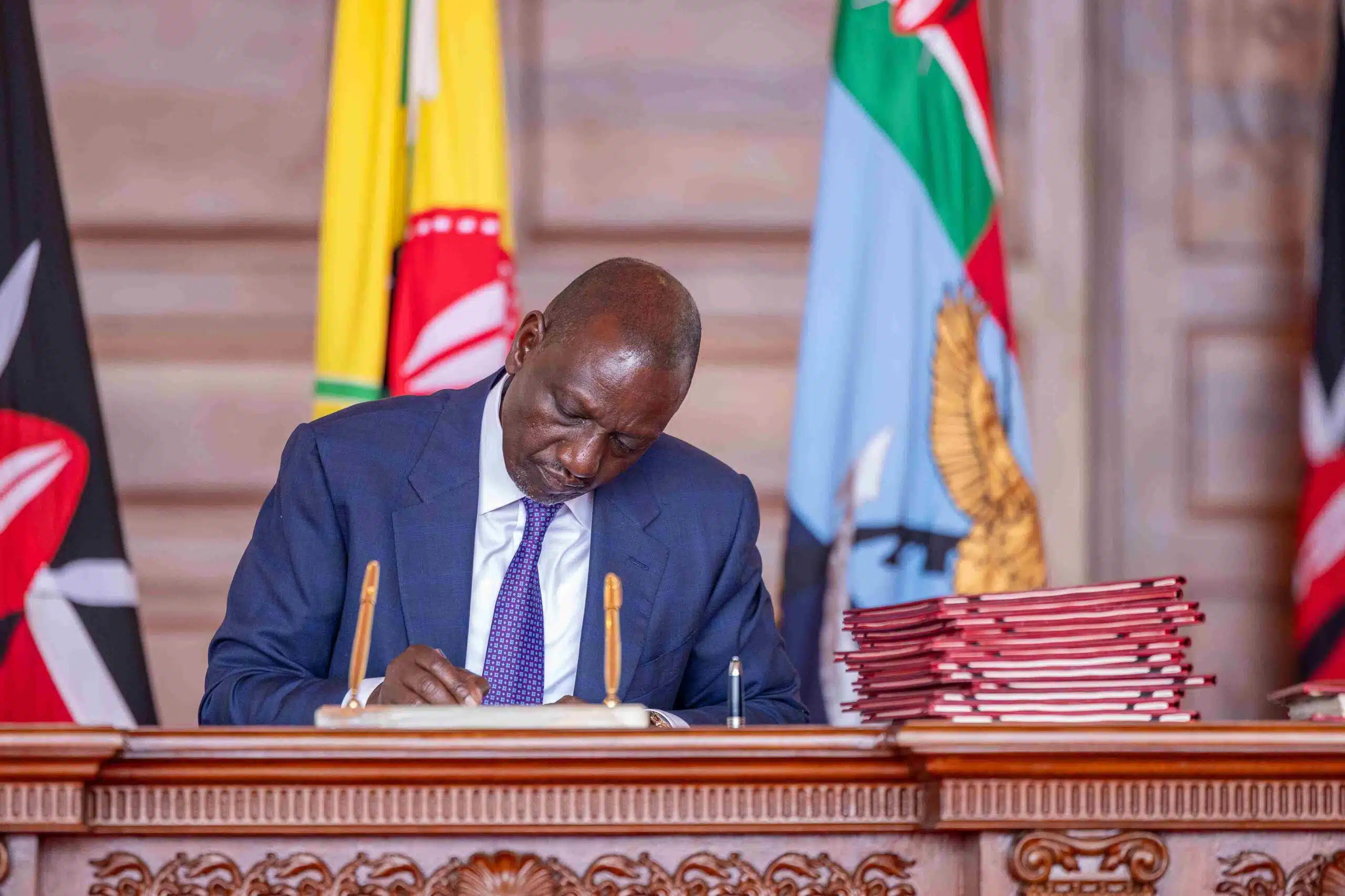For the second year in a row, Kenya has attracted more startup funding than Nigeria. In 2024, Kenyan startups raised $638 million, which is 88% of East Africa’s total funding. In contrast, Nigeria only raised $410 million, marking a big drop from previous years. This decline is part of a broader trend in Africa, where total startup funding fell by 25%, from $2.9 billion in 2023 to $2.2 billion in 2024.

The decline in funding is linked to global challenges, like rising interest rates and tighter venture capital markets. However, it also highlights problems within Nigeria, such as currency issues, exchange rate volatility, and inconsistent government policies. Nigeria is ranked 131st globally for ease of doing business, which is a huge deterrent for investors.
Kenya has seen better growth due to its more stable regulatory environment and strong support for startups. As a result, it continues to attract a large share of private equity deals, especially in the second half of 2024. Reports show that most of the funding in Africa went to Kenya and South Africa, with each country securing a third of all private market deals.
The drop in startup funding could hurt Nigeria by making it harder to attract and keep investors. With less money coming in, startups might find it tough to grow, create new ideas, and make profits. Investors are looking for businesses that can make money, but Nigeria’s problems with currency and changing policies could make them hesitant to invest for the long term.
It can also have serious effects on its startup ecosystem. Startups are key to creating jobs, developing new technologies, and driving economic growth. Without enough financial support, these businesses may struggle to grow, leading to fewer job opportunities and slower innovation.
To turn things around, Nigeria needs to address the key issues holding back investment. The country must improve its ease of doing business, stabilize its currency, and create clear, predictable policies that will encourage investment. Only then can Nigeria hope to regain its position as a leader in Africa’s startup scene.
If Nigeria doesn’t make these changes soon, it risks falling further behind Kenya and other competitors in attracting investors and funding for its startups.






